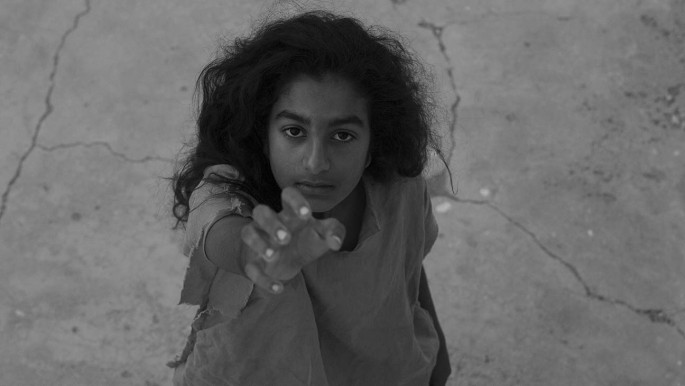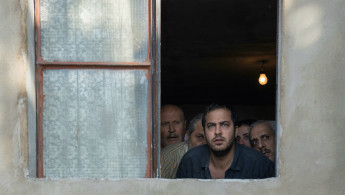Venice Film Festival: The Arab world makes big splash at the Lido
Dating back to 1932, the Venice International Film Festival is the oldest of "the big three" European film festivals, along with Cannes Film Festival and the Berlin International Film Festival.
Although the event this year has come under fire for its lack of female filmmakers in the competition, a number of films directed by Middle Eastern female filmmakers made the cut.
Saudi Arabian filmmaker Haifaa al-Mansour entered the 21-strong competition line-up with her much-anticipated film The Perfect Candidate.
This year, the festival also appointed its first Arab female judge with Tunisian-Egyptian actress Hend Sabry on the panel for the Luigi De Laurentiis Award for a Debut Film. She joins Algerian-French director Rachid Bouchareb (Days of Glory, Outside the Law) who is a jury member on the Horizons competition.
Here's a breakdown of the most intriguing Arab cinema playing at the festival (and beyond) this year.
The Perfect Candidate by Haifaa al-Mansour
Haifaa al-Mansour turns her gaze back to Saudi Arabia this year with the comic drama The Perfect Candidate, set to make its world premiere at the festival.
The director's much-anticipated fourth film sees Mila Al Zahrani star as Dr Maryam – a twenty-something female doctor controversially trying to enter politics in the kingdom.
With scenes of women working, driving, and running for elected office, as well as public performances by musicians, it showcases an aggressively coming-of-age country – or at least trying to (the movie was supported by the fledgling Saudi Film Council). Mansour is also one of three women on the country's 13-member board of the General Authority for Culture.
Coming off the back of the filmmaker's past works: Wadjda and the English-language Mary Shelley, The Perfect Candidate delves into themes of female agency and tackling gender-based obstacles in Saudi Arabia.
The director zones in on how Saudi people are negotiating systemic change as it has unfolded in the country over the past seven years.
Speaking to journalists at the festival, she praised the country's "momentum change", emphasising the role of cinema in female empowerment, and not only in the Arab World.
"Women face similar barriers the world over. Of course this is more pronounced in the Middle East, but it's also noticeable in the West. I felt like this was a timely story about how women can move forward."
Scales (Sayidat Al Bahr) by Shahad Ameen
Scales continues in Saudi cinema's surge of female-led stories. Shot in Oman, the black and white allegory follows a 13-year-old girl (Hayat) living in a poor fishing village where the main source of food is the flesh of mermaid-like creatures.
Playing at the Venice International Critics' Week competition, the dystopian tale is not set in any specific location but is more broadly about the Arab world.
"It's not an Omani film or a Saudi Arabian film [...] it's an Arabic film and I feel that any Arab who watches it will relate to it," according to filmmaker Shahad Ameen.
Traditional custom forces villagers to offer one daughter to the sea as a sacrifice to the Gods, in the hope it will end a drought.
Earlier in her life, Hayat escaped this fate with her father's help, but after her mother gives birth to a son, she faces the threat of being forfeited once again. She is left to jostle between accepting her fate to the mysterious sea creatures or finding a way to escape.
Even though Ameen draws inspiration from ancient Middle-eastern folklore such as the Assyrian mermaid-goddess Atargatis, the fantasy film is firmly forward facing.
"It's about how easy it is to accept a different reality, that life is more important than tradition," the filmmaker adds.
 |
|
All This Victory by Ahmad Ghossein
Set during the 2006 conflict between Hezbollah and Israel, the drama follows a group of Lebanese civilians trapped in a house in small village in southern Lebanon.
Premiering at Venice's International Film Critics' Week, it's the first feature film from Lebanese director and visual artist Ahmad Ghossein.
Tensions within the house rise as bombs burst culminating in a band of Israeli soldiers entering the building. Set largely in a single location, the tense film hinges on the three days that follow.
Ghossein is unbending in that that this is not "a war film", but rather a film set "in the war".
"I'm from the south and I lived this war […] My house got destroyed there also. And this story, it happened in my mother's village, where I spent all summers when I was a kid. I know those people and this story stayed with me for many years. And then I said, 'OK, I want to do a feature about that.'"
The Venice Film Festival opened on August 28 and will run until September 7
Jad Salfiti is a British-Palestinian culture and politics journalist.
Follow him on Twitter: @JadSalfiti







